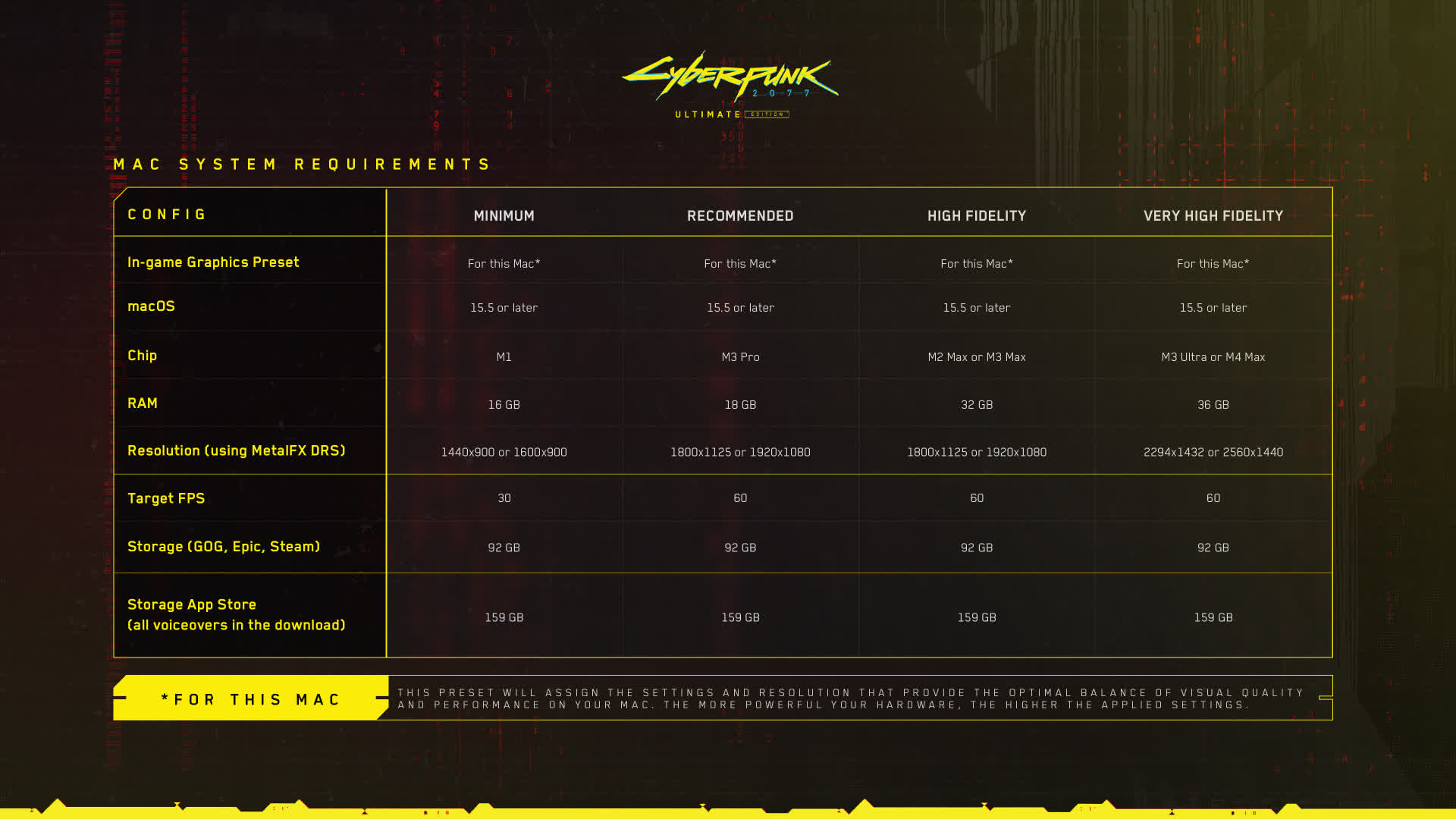In brief: When Cyberpunk 2077 was released five years ago, nobody could have believed that it would one day be playable on MacBooks. But Cyberpunk 2077: Ultimate Edition finally arrived on Apple's devices last week. To see how well the game performs, a YouTube channel tested it on four Apple silicon-powered machines.
The Ultimate Edition of Cyberpunk 2077 launched on the Mac App Store as well as Steam, GOG.com and the Epic Games Store on July 17, combining the base game and the excellent Phantom Liberty expansion.
For the Mac release, CDPR spent 18 months rebuilding the REDengine pipeline to support Apple's Metal API. This involved optimizing the game for Apple's M-series chips and breaking down each frame into parallel tasks.
The studio says Cyberpunk 2077 is optimized for Apple silicon Mac models with 16GB or more of unified memory, though it recommends an M3 Pro with 18GB of unified memory for 1080p/60 FPS gameplay.
YouTube creator Andrew Tsai decided to put the FPS/RPG through its paces on four M-series Macs: an M4 MacBook Pro (16GB / 10-core GPU), an M3 Max MacBook Pro (48GB / 40-core GPU), an M1 Max MacBook Pro (32GB / 32-core GPU), and an M1 MacBook Air (8GB / 8-core GPU).
Not too surprisingly, the M3 Max with its 40-core GPU and 48GB of unified memory was the best performer, reaching 78 FPS at 1080p High Settings and MetalFX upscaling turned off. With MetalFX set to quality, that figure increased to 104 FPS.
While the unsupported 8GB M1 MacBook Air can run the game, you probably wouldn't want to play it. It manages just over 12 FPS with MetalFX enabled and set to quality – there was little point in testing it without upscaling.
The M1 Max MacBook Pro, with four times more RAM and GPU cores than the base M1 MacBook Air, does fare much better. It managed 70 to 90 FPS during indoor sections of the game and 60 – 70 FPS in open-world combat. The built-in benchmark test showed 51.87 FPS – with MetalFX enabled and with it disabled.
The M4 MacBook Pro with its 10-core GPU reached 26 FPS without upscaling. MetalFX pushed the figure to just under 39 FPS when enabled.
Tsai also compared Cyberpunk 2077's native Mac version against the Windows version running via the CrossOver compatibility layer. Somewhat surprisingly, the native port offered only around a 3% improvement.
Tsai said that he expects these figures will improve going forward as more optimizations are implemented.
Can your Mac handle Cyberpunk 2077? FPS benchmarks put M-series chips to the test
